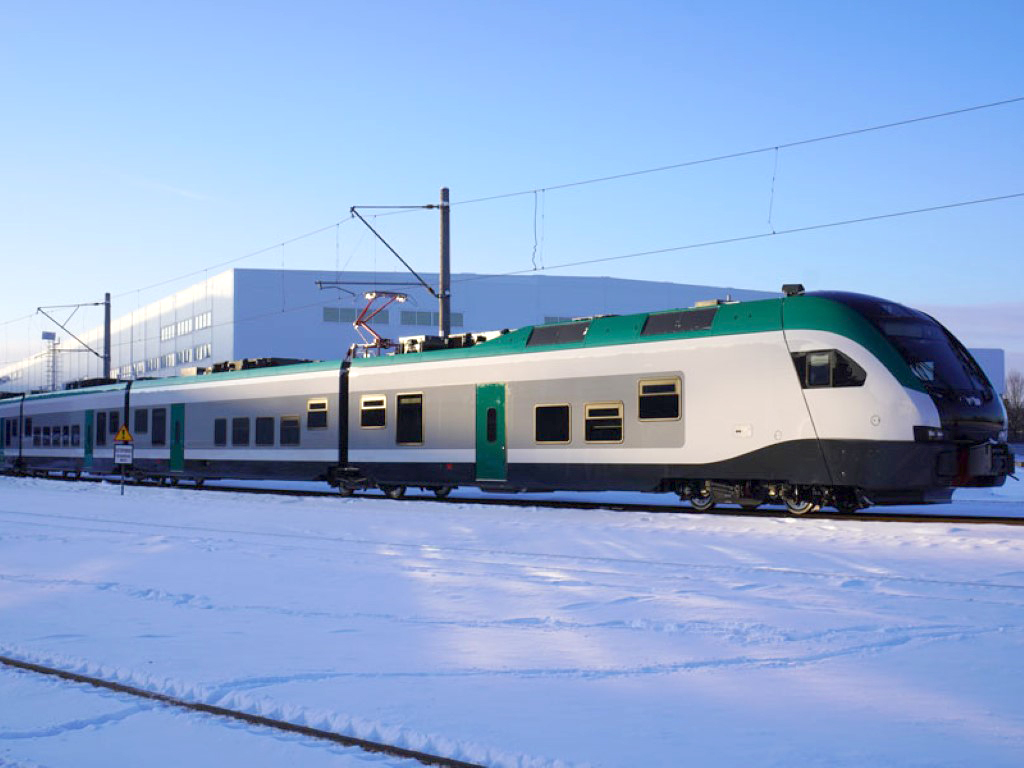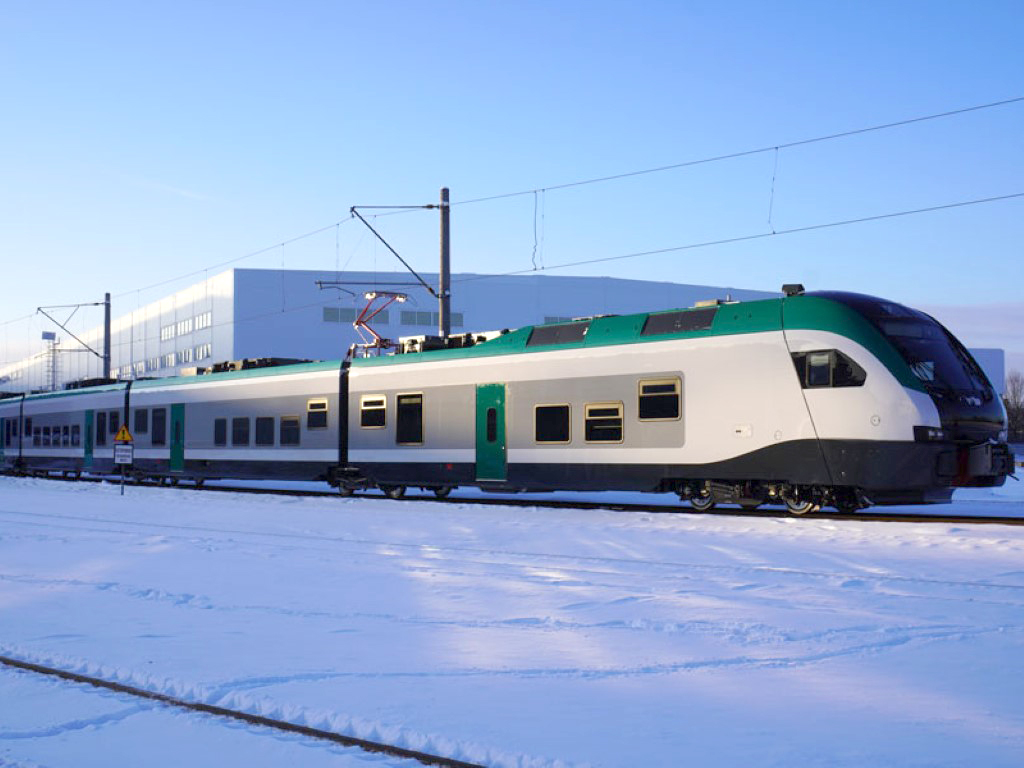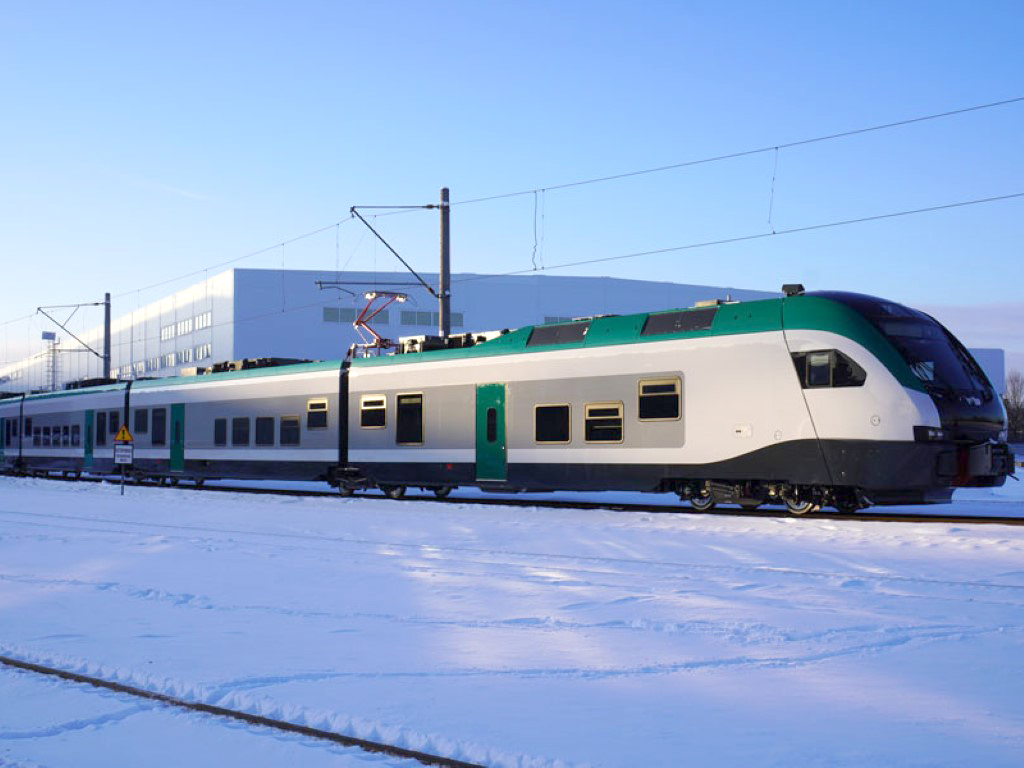Byelorussian Railway to start trials of a new electric train designed for interregional lines (according to BC Press Service, 26 January 2021)



The Byelorussian Railway and Stadler Minsk have begun a set of tests and trials of the first interregional five-carriage business class EPM electric train. The train is fresh out of the gate of the Stadler Minsk manufacturing facility in Fanipole, Republic of Belarus.
The contract to deliver 10 state-of-the-art five-carriage electric trains of the EPM series was signed and awarded by the Byelorussian Railway to Stadler Minsk CJSC in January 2019.
The delivery of the first three trains to BC was scheduled for Q3 2021. The trains are intended to run on the electrified segments of the Byelorussian Railway where the greatest numbers of passengers is observed.
During the tests that will closely emulate reallife operating conditions, the EPM electric trains will need to demonstrate their conformance with the Statement of Work and Technical Requirements, as well as with the applicable technical regulations. To this end, the test program includes braking and functional tests, track impact evaluations, tests for conformance with requirements to electric, control, and monitoring equipment, as well as to fire and environmental safety standards. As part of the manufacturing process, static tests have already been completed at the Stadler Minsk facilities.
The electric train’s trial runs will total at least 5000 km. Once they are completed, acceptance and certification tests will be administered in order to verify conformance with the requirements of the Statement of Work and Technical Regulation of the Customs Union TR TS 001/2011 “Safety of Railway Rolling Stock.” The new five-carriage electric trains are modeled on the seven-carriage electric trains of the EPM series that have been a success in their operation on the Minsk-Gomel line since August 2016.
The top speed of the new five-carriage electric trains is 160 km/h, their length - 92,960 mm, and the width of the body - 3480 mm. The train has a total of 262 first class and second-class seats.
The first-class area of 16 seats offers higher comforts to passengers. It has comfortable seats with adjustable reclining back, and non-shared armrests for each passenger. The first-class area is separated from the rest of the train with a glass partition operated by an electric motor. The first- class area is also equipped with an attendant call button which, when pressed, actuates an audible and visible signal in the attendant’s compartment.
The area has a stowage rack for larger luggage items, and a coat rack. Second-class cabins have soft seats with armrests designed on the 3+2 formula.
The windows in the new EPM trains are furnished with roller shades that can be adjusted to any desired position. The train has three toilet facilities equipped with emergency call buttons, including one facility for people with limited mobility. All signage inside the carriages, including carriage and seat numbers and passenger-operated controls, is replicated in Braille. Special seats are provided for people with limited mobility. One of the electric train’s cabins has a stowage area designed to accommodate baby carriages, larger luggage, or three bicycles.
In view of today’s focus on rolling stock disinfection, it should be noted that the EPM five-carriage electric trains are equipped with air conditioning systems with integrated antibacterial modules that treat recirculated air. The modules are based on germicidal quartz lamps that eliminate microorganisms with UV light.
On top of that, the electric trains offer wireless Wi-Fi access to the internet and are equipped with a GSM signal amplification system. To improve the efficiency of rolling stock operation, such data as the train’s location, power consumption, and route are communicated to the central server of Byelorussian Railway.
Today, the Byelorussian Railway operates 18 modern electric trains built by Swiss-based Stadler Rail Group. The trains run on urban, regional, and inter-regional business-class routes, enjoying well-deserved popularity and high demand among passengers.
